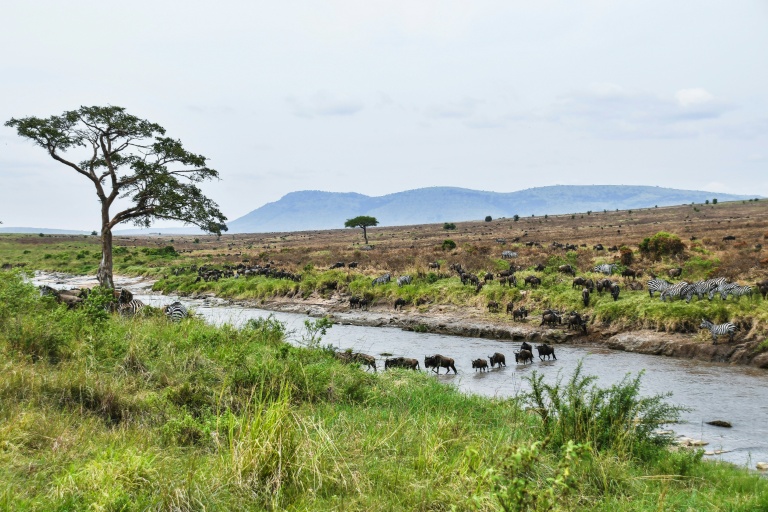Namnyak, a Maasai herder in north Tanzania, fears a carbon credit scheme linked to Volkswagen — dismissed by NGOs as “greenwashing” — could destroy her community’s way of life.
Under the scheme, local Maasai are being offered money to keep their cattle on a strict “rotational grazing” scheme so that the grass grows longer and captures more carbon.
The idea is that Volkswagen, and possibly other companies, will pay for this through “carbon credits” which are supposed to offset carbon emissions from its factories and operations.
Many researchers and NGOs question the whole concept, saying such schemes disrupt local communities while doing little to improve the environment, existing only to allow companies to keep polluting elsewhere.
The scheme in northern Tanzania is run by Volkswagen partner Soils for the Future Tanzania (SftFTZ), covering the districts of Longido and Monduli, an area of 16,000 square kilometres (6,200 square miles) — roughly 20 times the size of New York City.
For Namnyak, a 33-year-old mother of three in Longido, it seems absurd.
Local Maasai have been sustainably living on the land — rotating grazing in line with the weather and seasons — for centuries.
Many locals, she said, fear the company has ulterior motives and may one day seize their land.
“It does not matter how much money they give us. We depend on our land for our cattle, our crops and our beekeeping. This is our lives, and the ones of the future generations,” she told AFP.
– ‘Implausible’ –
SftFTZ and Volkswagen deny any desire to take their land, but many locals remain suspicious and feel they are getting money for nothing.
A 2023 study of a similar scheme in neighbouring Kenya by Survival International, an NGO supporting Indigenous communities around the world, found it was “highly implausible” that the new grazing regime was actually being implemented.
“To the contrary, the vegetation appears to continue to deteriorate in large parts of the project area,” it said.
Verra, the main international body that validates carbon credit projects, suspended credits from a major forestry project in Zimbabwe in September, for which Volkswagen was also a client, saying its benefits had been exaggerated.
Verra told AFP it had yet to audit the project in Tanzania, or a competing carbon credit scheme proposed by US-based Nature Conservancy in the same region.
– ‘Scam’ –
Several researchers and NGOs believe the Maasai are unwitting participants in a vast “greenwashing” scheme by Volkswagen.
